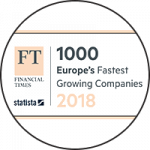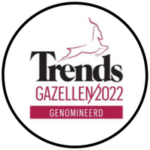Summary In the contemporary business environment, digital procurement is becoming increasingly popular and sought after by businesses around the world. The relationships …
How do procurement savings contribute to spend optimisation?
The importance of procurement savings
Procurement savings refer to the measurable and quantifiable reductions in costs or expenditures that an organisation achieves through its procurement activities.
These savings can result from various strategic initiatives, negotiations, process improvements and cost-effective sourcing practices within the procurement function.
The main goal of savings in procurement is to obtain goods and services at the best possible value while balancing quality and price considerations. This encompasses both direct and indirect cost reductions, which can involve negotiating better prices with suppliers, leveraging volume discounts, optimising supply chain processes, and implementing efficient procurement strategies.
What are the advantages for businesses in pursuing procurement savings?
Spend optimisation and procurement savings play a pivotal role in business success because they directly impact financial performance, competitiveness, risk management, and the ability to strategically invest in growth opportunities.
Cost reduction
The primary benefit is cost reduction. By optimising spending and achieving savings in procurement, organisations enhance profitability, improve financial health, and ensure efficient resource utilisation.
Improved profit margins
Procurement savings directly contribute to improving the bottom line by maximising the value obtained from every dollar spent. This potential for higher profitability is critical for sustained growth.
Competitive advantage
Efficient spend management provides a competitive advantage. Organisations that can offer products or services at competitive prices due to effective cost management are more likely to succeed in the market.
Resource allocation
Optimising spending allows organisations to allocate resources strategically. Whether for innovation or growth initiatives, this flexibility helps adapt to market changes and seize competitive opportunities.
Enhanced cash flow
Reducing costs through procurement savings positively impacts cash flow. Effective cash flow management is vital for sustaining day-to-day operations, managing liabilities, and seizing growth opportunities.
Risk mitigation
Effective procurement practices play a crucial role in mitigating risks associated with supply chain disruptions. By proactively addressing them, organisations can ensure business continuity and resilience.
Supplier relationships
Strategic procurement involves cultivating strong collaborative relationships with suppliers. These relationships lead to better terms, access to innovations, and contribute to long-term business success
Compliance and governance
Proper spend optimisation practices ensure compliance with regulations, ethical standards, and internal governance policies. This reduces the risk of potential legal issues, fines, and reputational damage.
Efficiency and productivity
Streamlining procurement processes and optimising spending enhance organisational efficiency. This results in time savings, reduced administrative burdens, and increased productivity across the business.
Strategic decision-making
Organisations that understand their spending patterns can make informed strategic decisions. Utilising procurement data and insights informs business strategies, market positioning, and future investments.
Organisations that prioritise effective procurement practices position themselves for long-term sustainability and success in the dynamic business environment.
How can businesses aim for cost optimisation with procurement?
Since procurement is a core business function, achieving cost optimisation within it can pay bountiful dividends. Here is how businesses can achieve their cost optimisation goals:
Supplier negotiation and collaboration
Negotiate favourable terms, discounts and pricing with suppliers and foster collaborative relationships with key suppliers to identify mutual cost-saving opportunities within procurement and sourcing processes.
Strategic sourcing
Evaluate and select suppliers based on cost, quality and performance. Consider global sourcing in processes whilst exploring alternative suppliers and diversifying the supply chain to reduce risk and optimise costs.
Volume discounts and consolidation
Leverage the purchasing power of larger volumes to negotiate volume discounts and consider consolidating purchases with narrowed suppliers to streamline operations, achieve better terms and create supplier relationships.
Cost-benefit analysis
Procurement revolves around quality, cost and effective allocation. Conduct a cost-benefit analysis before making procurement decisions and consider the total cost incurred and how it affects the organisational flow.
Technology adoption
Implement procurement technology and e-procurement to streamline processes, reduce manual processes, and use data analytics and business intelligence tools to identify cost-saving opportunities and track performance.
Process efficiency
Streamline procurement processes to reduce cycle times and administrative costs and consider the automation of routine tasks, such as order processing and invoice reconciliation to improve efficiency and reliability.
Supplier performance management
It is important to monitor and evaluate supplier performance regularly as they are a core part of procurement. Identify and address issues promptly to ensure suppliers meet agreed standards and deliver cost-effectively.
Risk management
Risks incur costs. Thus, developing strategies to address supply chain disruptions and price fluctuations is essential to diversify suppliers to create contingency plans to minimise the impact of unexpected events.
Demand planning and forecasting
Procurement factors around demand and supply. Thus, improving demand planning and forecasting accuracy avoids overstocking or stockouts—optimising inventory levels and reducing warehouse and carrying costs.
Empower your business with Kronos Group and pioneer transformative spend optimisation excellence
Embark on a transformative journey towards spend optimisation with Kronos Group, a leading expert in spend management consulting. Discover a seamless transition into a new era of financial efficiency and strategic cost control guided by our proven expertise. We specialise in driving digital transformation and facilitating technology adoption to empower businesses in their pursuit of spend optimisation.
Kronos Group excels in navigating the intricacies of financial management, dedicated to streamlining operations and achieving predefined cost-saving objectives. Connect with us today and embark on a journey to revolutionise your financial strategies, positioning your organisation for sustained success and growth.

Fighting the effects of inflation with sourcing and procurement consultants
Stay up-to-date on the latest insights on procurement, finance, and project management.
Summary Strategic procurement has become a necessity in today’s business world and organisations try to remain competitive. Having the right procurement strategies …
Summary The world of consulting has been undergoing a massive transformation and management consulting jobs are experiencing the impacts of these changes. …
FAQ
Technology plays a significant role in procurement by automating processes, providing data analytics for informed decision-making, and facilitating e-procurement systems that streamline operations resource allocation, and optimise financial performance.
Savings in procurement contribute to the overall business strategy by freeing up resources for strategic investments, enhancing competitiveness, and supporting long-term financial sustainability.
To derive the best results from procurement spending, it is best to have regular supplier evaluations, benchmark performance, implement efficient procurement processes, and stay informed about market trends and opportunities.














